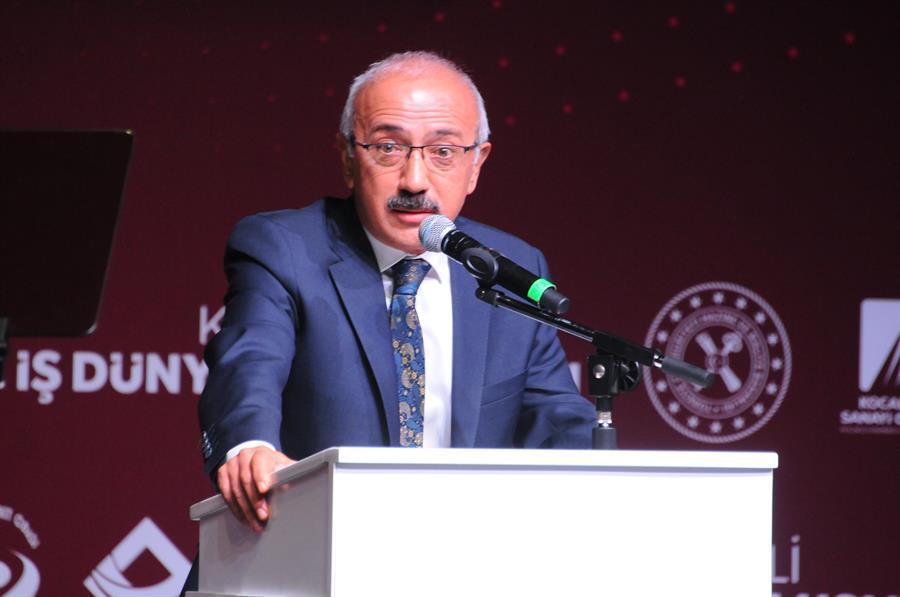
The Turkish government is determined to fight against the adverse effects of stimulus policies adopted during the pandemic, such as high inflation, exchange rate volatility and risk premium increase, Treasury and Finance Minister Lütfi Elvan said on Aug. 20.
Turkey’s economy is expected to post a gross domestic product (GDP) growth of over 8 percent this year, he also said during a meeting with businesspeople in the northwestern industrial province of Kocaeli.
“We have implemented inclusive and coordinated economic policies during the pandemic. In this regard, we have taken measures to support every social segment. With the help of those measures, Turkey’s economy has managed to protect its production capacity and has continued to grow,” said Elvan.
“Industrial production, with support from robust exports, has jumped significantly and became the engine of growth. Another gratifying development is the upward trend in investments, particularly in the machine and equipment sector,” he added.
The economy expanded 7 percent year on year in the first quarter of 2021 amid economic fallout from the coronavirus pandemic, according to the Turkish Statistical Institute (TÜİK).
Last year, Turkey was one of the rare countries that posted positive growth as its economy grew by 1.8 percent and the GDP hit $717 billion.
In the second quarter of this year, the Turkish economy is expected to grow more than 20 percent with low base effect and a strong recovery in manufacturing, exports and services.
Leading economic indicators, a rising COVID-19 vaccination rate and increasing tourism revenues altogether raise hopes for the economy, said the minister.
“Unless an external pandemic shock emerges, we expect a growth of more than 8 percent for 2021,” he said.
The government is committed to limit the current account deficit to around 3 percent of the GDP, according to Elvan’s remarks.
Touching on the “adverse effects” of strong growth, he said: “Unfortunately, we have seen exchange change volatility, high inflation and increasing country risk premium. In a bid to curb those adverse effects, we have taken firm steps in monetary and fiscal policies starting from the final quarter of 2020.”
Turkey’s current account balance posted a deficit of $1.12 billion in June, down $1.95 billion from the same month last year, the Turkish Central Bank announced on Aug. 13. With June figures, the current account deficit continued to narrow for the fourth month in a row.
Meanwhile, calendar-adjusted industrial production jumped 23.9 percent in June compared to the same month last year.
The Turkish Central Bank has kept its one-week repo rate – also known as the policy rate – steady at 19 percent for the fifth month in a row, as annual inflation rate stood at 18.95 percent in July.
The latest Purchasing Managers’ Index (PMI) survey data from Istanbul Chamber of Industry and IHS Markit indicated that the loosening of COVID-19 restrictions in Turkey had a positive impact on demand and production in the manufacturing sector during July.
The headline PMI rose to 54 in July from 51.3 in June. Any figure greater than 50.0 indicates overall improvement of the sector.